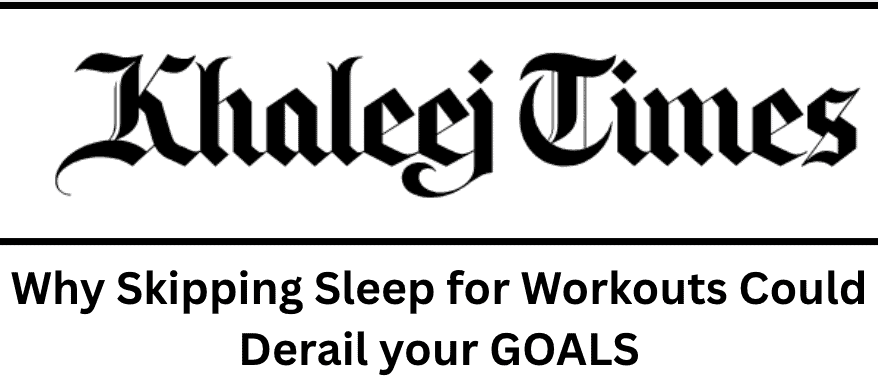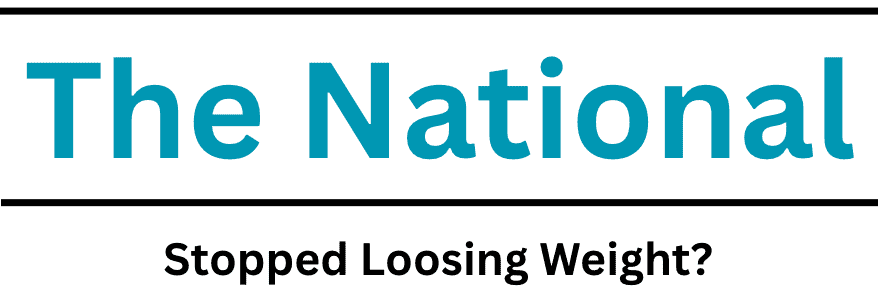WHY SKIPPING SLEEP FOR WORKOUTS COULD DERAIL YOUR GOALS
Sometimes, the most productive choice is to hit snooze instead of the gym — and this is not being lazy, it’s smart.
By Lakshana N. Palat, Assistant Features Editor
A workout or sleep? Well, it just makes you dull. And maybe… a little crabby.
Sahil, a software engineer based in Dubai, remembers being so caught up in the throes of fitness that he would compromise other things. He burned the candle at both ends, working out late for hours and going out with friends. “And waking up for work. I had no time to sleep,” he says. Fitness was his hobby, and he was just too revved up to let go of it.
Then, he was constantly exhausted. A lot of rest and recovery. “That’s a fact you see on social media,” says Dubai dietician Sahar J. “But still, people are determined to work out, even if it means they do so while running on fumes.”
Yet, there’s the catch: Fitness as a healthy lifestyle isn’t all about workouts and reps. It’s about rest too. Health and fitness should be inclusive states, and if you constantly feel tired, you might give up on it altogether. It’s the idea of pushing through exhaustion that needs rethinking.
“When you consistently make it to the gym through sheer exhaustion, it’s not sustainable,” explains Sahar. Research consistently links better exercise outcomes to the healthier rest-consistent pattern, notes Stanford Sports Institution and other fitness journals.
Sleep, Jinkie explains, is the foundation of recovery. It’s when the body undergoes repair. The demands of physical workouts heighten this need. During deep sleep, blood flow to the muscles increases, allowing for repair and growth. This is the most critical phase of sleep for those who are physically active.
So skipping sleep isn’t smart — even if it’s in the name of fitness.
SLEEP AND FITNESS
The connection between sleep and fitness is undeniable. Studies reveal that insufficient sleep hinders athletic performance, while a good rest boosts it.
For instance, a Stanford University study found that college basketball players who extended their sleep to 10 hours per night for 5-7 weeks improved their sprint times, reaction times and free-throw accuracy.
Another 2021 study published in Sports Medicine concluded that even moderate sleep deprivation impacts endurance, strength, and cognitive abilities during workouts.
Furthermore, there’s research that shows sleep deprivation disrupts hormone balance and metabolism. It also lowers immunity and weakens cognitive and motor functions, thereby increasing chances of injury.
MUSCLE RECOVERY, GROWTH
To build muscle, your body releases human growth hormone and muscle-repairing substances during deep sleep, explains Jinkie. When you skimp on sleep, these critical processes are disrupted, delaying muscle recovery and growth.
When we exercise, we create tiny tears in our muscle fibers. Sleep is when these fibers are repaired and strengthened. Lack of sleep slows this repair, while increasing production of proteins and enzymes needed for recovery. Additionally, sleep regulates levels of cortisol, the stress hormone.
So when you don’t get enough sleep, your recovery isn’t enough. You’re slower, fatigued — and your motivation dips.
NO FOCUS, NO MOTIVATION
Dubai-based Haniah Costa, a fitness trainer, says some people turn up at 5am so tired, they just go through the motion. They haven’t had enough sleep. But for those who rest well, they have more energy and better form.
“Remember that sleep helps regulate your hunger hormones,” she says. “So when you’re sleep-deprived, you’re more likely to crave unhealthy foods.”
Sleep deprivation leads to increased levels of fatigue, which diminishes motivation to work out.
Graziani notes, “The lack of sleep impairs focus, coordination, and reaction time, which increases the likelihood of accidents during physical activities. It also leads to slower reaction times and impairs higher-risk decisions.”
This is why, when you’re too tired, even simple workouts feel exhausting.
— Grace Fabriaria Graziani, Family Medicine Specialist
THE CORTISOL TRAP
Such a person is torn between two conflicting emotions: Wanting to rest, but feeling guilty. Graziani counters that they’ve woken up at 5am, which is a huge effort — but it just isn’t wise. A rested person can plan better, track progress, and stay on path. If you’re too tired to do so, you’re working against yourself.
Dr. Grace explains: “When you work out exhausted, you weaken your body, not grow it.”










